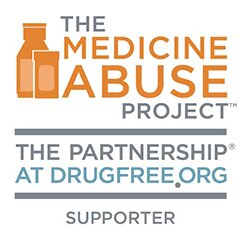| Medication: |
Antabuse (Disulfiram) |
| Dosage: |
500 mg, 250 mg |
| Price: |
from $0.50 per pill |
| How to Buy |
Get Started Now |
Antabuse (Disulfiram)
Antabuse is an alcohol-sensitizing drug approved for treatment of chronic alcohol addiction in adults. Antabuse helps to stop alcohol addiction and to prevent excessive alcohol consumption even if other treatment methods of alcoholism are ineffective.
How does Antabuse help to reduce craving for alcohol?
Antabuse helps to create a stable alcohol intolerance, and thereby helps alcoholics to abstain from alcohol consumption.
Mechanism of Antabuse action is to inhibit the activity of enzymes that regulate ethanol metabolism in the body. Due to Antabuse influence on the ethanol metabolism, a person suffering from alcoholism experiences aversion to alcohol, including to beverages that contain very low doses of alcohol.
For treatment of alcohol dependence, Antabuse effervescent tablets, which contain 200 mg, 250 mg, 400 mg or 500 mg of active ingredient Disulfiram, are used.
Antabuse tablets are prescribed to adult men and women who have a sustained motivation to abandon the consumption of alcoholic beverages.
Before using Antabuse, the patient can be recommended with:
- psychological treatment
- motivational methods
Without the sustained motivation and without psychiatric methods, the effectiveness of alcohol dependence treatment is reduced. For effective treatment of chronic alcohol dependence, it is necessary to avoid stressful situations and to try to keep a normal sleep-wake schedule.
The recommended doses and duration of use
During the first two weeks of treatment of alcohol dependence, it is recommended to take 50 mg of Antabuse per day. This drug should be taken once a day, preferably in the morning.
If a sedative effect is developed after application of Antabuse tablets, it is necessary to change the dosing regimen and to take Antabuse before bedtime. In case of severe sleepiness, the dosage of this drug for alcoholism treatment can be reduced.
The maximum dose of Antabuse is 300 mg per day. Antabuse can be used for:
- short-term treatment of alcoholism lasting several weeks
- long-term treatment of alcoholism lasting more than 6 months
Like other highly effective drugs for alcoholism treatment, Antabuse may cause side effects. When using high daily doses of Antabuse, the risk of side effects increases.
Potential risks and interaction of alcohol with Antabuse
Some patients may experience Antabuse psychiatric adverse reactions such as:
- mania;
- drowsiness;
- depression;
- peripheral neuritis.
During the whole period of using Antabuse, refrain from any beverages that contain alcohol.
If an alcoholic beverage is used before or after the application of Antabuse, the patient suffering from alcoholism may develop severe hypersensitivity reaction characterized by:
- A sudden decrease in blood pressure;
- heart palpitation and tachycardia;
- redness of the face and (or) shortness of breath.
Such adverse reactions usually occur within 5-30 minutes after using alcohol together with Antabuse. Besides the fact that Antabuse must not be taken with alcohol, its use is contraindicated in heart diseases, serious psychotic disorders, renal or liver disorders, pregnancy, and breastfeeding.
Key benefits of Antabuse
Antabuse is a key part of a comprehensive strategy to fight against alcoholism. Antabuse advantages over other drugs for alcohol dependence treatment is that it helps to continuously abstain from alcohol consumption at all stages of alcoholism treatment.
In long-term use of Antabuse, patients with alcohol dependence do not develop tolerance to its pharmacological effects. Therefore, in long-term treatment of alcoholism, Antabuse efficiency is not decreased and systematic increase in the dose of this drug is not needed.
Another important advantage of Antabuse is that it can be administered for alcoholism treatment in the patients who have not undergone detoxification. Therefore, the patient can start taking Antabuse tablets on the same day, when decision to start medical treatment of alcohol dependence was taken.
Unlike other FDA-approved drugs for alcohol dependence treatment (including Revia), Antabuse does not affect opioid receptors of the brain, so does not cause severe psychiatric side effects and can be prescribed for alcoholism treatment associated with anxiety symptoms.





